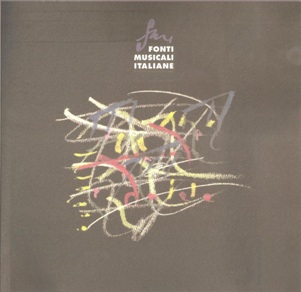Organizzazione e repertorio musicale della corte nel decennio francese a Napoli (1806-1815)
Abstract
Organization and musical repertoire of the Naples Court during the French domination, 1806-1815
The French permanence in Southern Italy was notable for the succession of two monarchs of undeniable reformist ideas.
The prudent and circumspect policy of Joseph Bonaparte, intended for the organization of the kingdom, was carried out with singular caution along the lines of the well-pondered «Observations on the actual state of the Kingdom of Naples».
The vast wave of detailed legislation which swept over the kingdom during the years of French rule was corroborated by a detailed analysis of the situation under the previous Bourbon regime. The abundance of rules and regulations, laws and decrees which characterized the French decade paid
particular attention also to the world of entertainment which, as a result, benefited considerably and acquired modern and efficient forms of expression. Since the international role of Naples remained unchallenged throughout the eighteenth century, these changes did not provoke particular discontent.
There were modifications it is true, not only in the management of the theatres, but also in the offer of productions even if many ot the novelties favoured by the French were already well-known to the intellectual circles of the Bourbon capital.
The signs of reform present in previous years considerably facilitated the changes which, outlined by Joseph Bonaparte, were then substantiated by Joachim Murat who, seconding the wishes of his predecessor, drew up a detailed legislation which was enacted in 1811. The activity of the French court in the theatrical and musical field can be divided (at the present state of knowledge) into two separate phases: the sluggish progress under the administration of Bonaparte was replaced by the totally different industrious and feverish activity encouraged by Murat, with the determined support of his strong-willed wife Carolina Annunziata. Joachim followed traditional long-standing strategies in an attempt to bring back somewhat out-of-date customs which saw in the monarchy an image of ideological stability.
Surviving sources endorse this viewpoint; the abundance of material on musical and cultural activities during Murat’s reign is in sharp contrast with the almost complete absence of information on the previous period. Given the lack of a corpus of detailed information (which is not to be found even in the Paris archives), the documents in the Historical Archive of Naples only permit the formulation of hypotheses regarding the first two years of French domination. The shadowy biennium of Giuseppe was followed by a period of frenetic musical activity at the Neapolitan court: music in the Royal Chapel and in the royal apartments reappeared and the monarchy regained possession of an indisputably effective element of propaganda. The royal palace was in fact reconfirmed as a gravitational point of culture, expressing itself in a series of events revolving around theatrical and cultural activity.
##submission.downloads##
Pubblicato
Fascicolo
Sezione
Licenza
© CIDIM
Tutti i diritti riservati


